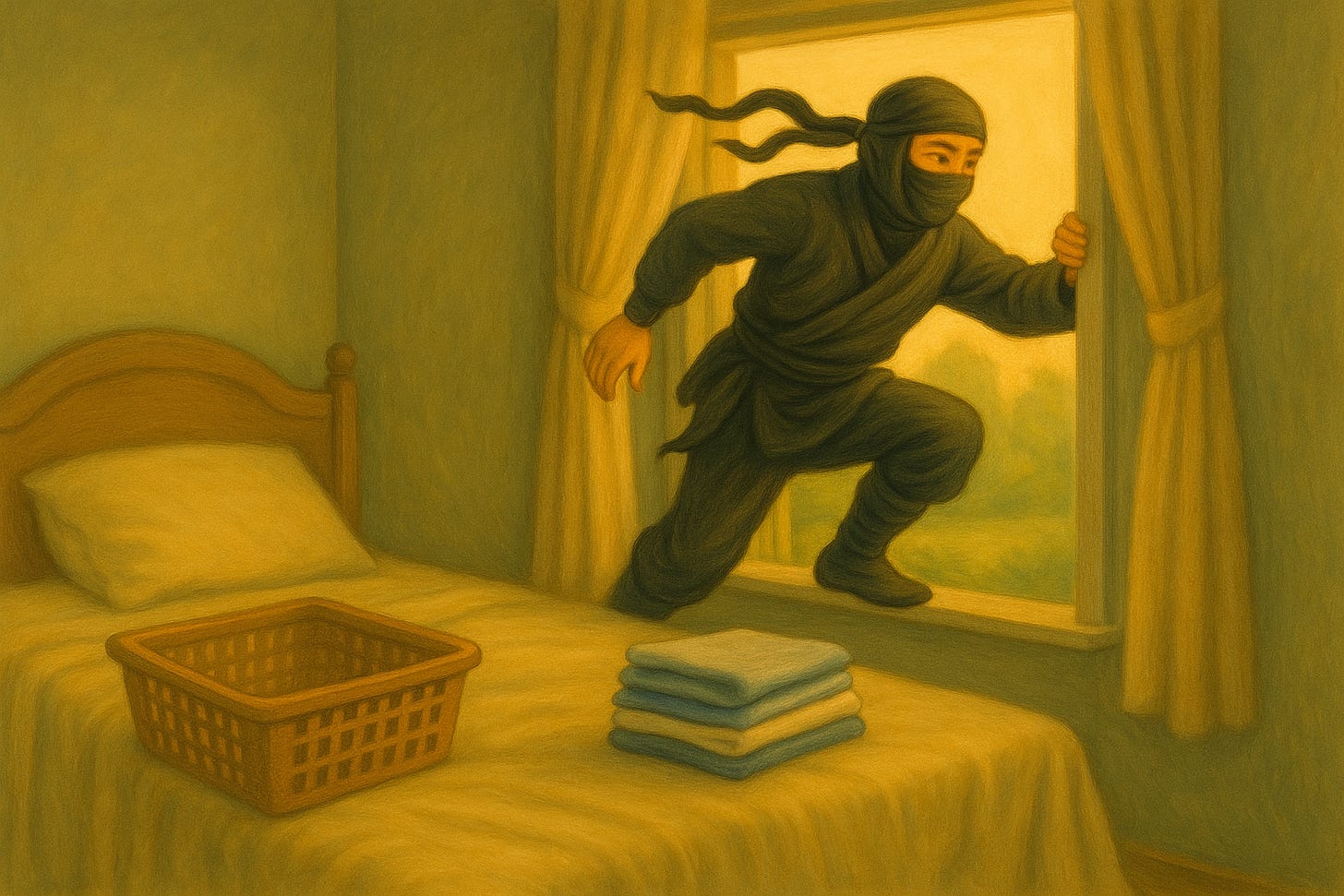Tao Te What Now? (Chapters 7-9)
A slightly unhinged walkthrough of the Tao Te Ching
So you’ve decided to read the Tao Te Ching.
Either you’re seeking peace, chasing enlightenment, trying to out-vibe your therapist, or you just like obscure philosophy that makes you feel smart and dumb at the same time.
Good news: you’re in the right place.
Bad news: it won’t help you get your life together in the way you think it will.
Better news: it might show you that you never had to in the first place.
This ancient Chinese text, written by Laozi around 2,500 years ago, is basically a poetic mic drop about the nature of reality, control, ego, and why trying hard often makes things worse. It’s short, mysterious, non-linear, and aggressively subtle. You won’t get it all on the first read. That’s part of the charm. It’s also part of the test. Which you are not supposed to try to pass.
About This “Cursed” Interpretation
We’re going to go through each chapter, one by one.
Instead of solemn chanting or incense or “sitting with it in silence,”
We’re going to translate it for actual humans with internet-fried brains, executive dysfunction, and a fondness for sarcasm.
Disclaimers:
We love the Tao. We also enjoy poking fun at ourselves while getting deep. That’s the spirit this was written in.
If you're looking for academic accuracy or lineage-specific devotion… this isn’t that.
If you're spiritually curious, allergic to self-serious gurus, and suspicious of people who wear too much linen—welcome home.
Chapter 7
The Tao Has No Main Character Energy
The Tao is eternal because it doesn’t have a backstory.
No birth. No death. No tragic origin montage.
It’s just... here. Still doing its thing. Quietly. Forever.
Like cosmic background music that never asks for credit.
Why is it so chill?
Because it doesn’t want anything.
It’s not out here trying to be “Tao of the Year.”
It shows up for everyone, asks for nothing, and leaves no voicemail.
Meanwhile, the Sage:
Stays in the background like a vibe ninja.
Doesn’t chase clout and somehow ends up leading.
Lets go of her ego like a “lockdown haircut”.
Isn’t trying to be fulfilled, and ends up… totally fulfilled.
Because the moment you stop gripping life like a steering wheel during a snowstorm,
you actually become part of the whole thing. No extra effort. No dramatic transformation.
Just… less cringe. More flow.
tl; dr; If you want peace, stop narrating your every move like it’s a biopic.
The Tao doesn’t care. And that’s why it lasts.
Chapter 8
Just Be Water, Man.
Water doesn’t do “hustle-culture”. Water doesn’t seek validation.
Water just flows into every crack and awkward silence, minding its business, hydrating the universe.
And that’s the vibe. The Tao? Big water energy.
If you want to live well?
Touch grass.
Stop turning everything into a flowchart.
Argue like someone who doesn’t want to die alone.
You’re not in charge of the universe. Calm down.
Do stuff that doesn’t make your soul file an HR complaint.
And when you’re with your people, close your apps and look them in the face like a sentient mammal.
Want people to actually respect you?
Stop trying to win life.
Just be deeply, weirdly okay with being you.
That kind of chill is rare, and people can smell it.
tl; dr; Be like water.
Chapter 9
The Tao does not Endorse Overtime
Don’t top off the glass. Know when to stop. Push things too far, and they spill.
Over-sharpen a knife, you have a flat spoon. Overdo anything: ambition, planning, even self-improvement and it becomes brittle. Peak sharpness is also peak fragility.
Hoard wealth or status and you paint a big, glittery target on your back. The more you have, the more fear and effort it takes to keep it.
Flexing is not the Tao. Showy ego-inflation invites envy, resistance, and eventual collapse. Pride comes before a faceplant.
Do the thing, do it well, then let go. Don’t cling to praise, don’t try to milk it. Disappear like a ninja after folding the laundry.
That’s it.
That’s serenity.
It's not loud. It doesn’t wear a badge.
It’s just… leaving before the applause or criticism even starts.
tl;dr; When you know when to stop, you’re aligning with the Way. When you keep pushing for “just a little more”? You’re working against it.



